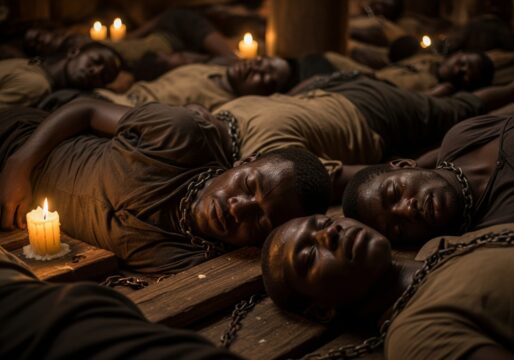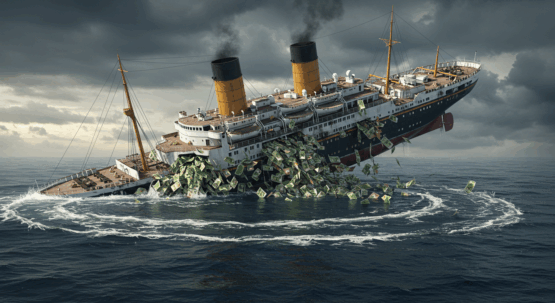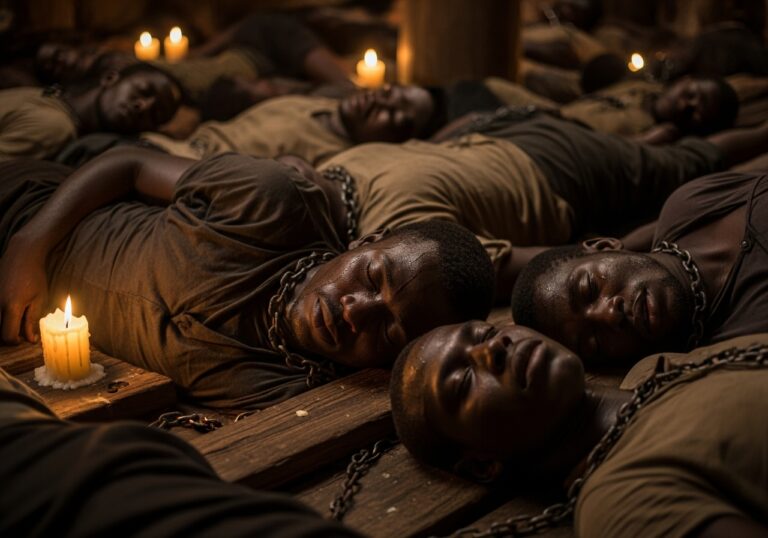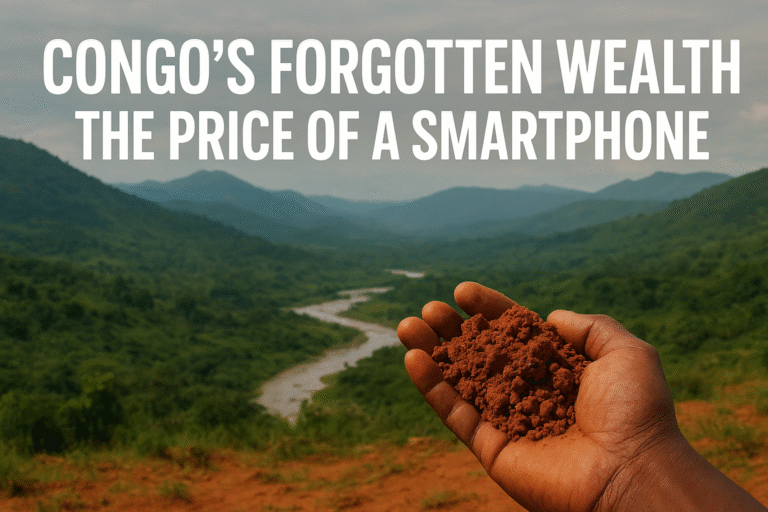I remember the first time I read about cobalt mining in Congo.
It was one of those quiet evenings when the world felt comfortably far away — phone charging on the desk, laptop glowing. Another story in another tab.
But this one stayed.
Deep in the heart of Africa lies a land of endless green.
Rivers that stretch like veins across the earth.
Mountains rich with color, and soil that glitters beneath the sun.
This land is the Democratic Republic of Congo — one of the richest places on Earth… and one of the poorest to live in.
Beneath its red earth lies treasure.
Cobalt. Coltan. Gold.
Minerals that power the modern world — the phone in my hand, the laptop on my desk, even the battery in an electric car.
But that same treasure has become a curse.
I watched footage of the mines — children climbing into narrow tunnels barely wide enough for their bodies.
They dig with bare hands.
No helmets. No gloves. No light.
Just the hope that the little stones they carry out might feed their families for one more day.
They work for a few dollars… while people like me, far away, spend thousands on the technology their pain makes possible.
The Congo should be one of the wealthiest nations in the world.
But its people live with some of the highest poverty rates on the planet.
Because the wealth never stays.
It’s taken — traded — exported.
Pulled from Congolese soil, shipped across oceans, and reborn in factories that never know the names of the people who died to supply them.
For decades, this has been more than an economic struggle — it’s been a war.
Armed groups fight over mining lands.
Villages destroyed. Families displaced.
Over five million lives lost in conflicts tied to minerals that fuel the world’s progress.
And still, the world stays silent.
The same nations that speak of human rights and sustainability keep profiting.
They sell a dream of clean energy and innovation…
But behind every “green” revolution lies a stain of red — the price paid by miners who will never own the phones or cars their labor builds.
Someone once said, “The world wants clean energy, but not clean hands.”
That line stuck with me.
Because if you really looked into the mines of Kolwezi or Katanga, you’d see the faces of children who should be in classrooms, not tunnels.
You’d see mothers waiting by the creek, praying their sons come home before sunset.
You’d see progress — built on suffering.
Congo’s story isn’t just about minerals.
It’s about value.
Who defines it.
Who takes it.
And who pays for it.
I think about that sometimes — especially when my phone lights up beside me.
How easily our lives depend on unseen hands.
How many lives are hidden inside something as ordinary as a screen.
Progress built on pain… is not progress at all.
If this story stayed with you, share it. Let it reach someone who hasn’t yet seen what lies beneath their screen.
Follow us on Facebook and Instagram for the latest updates and exclusive content!










